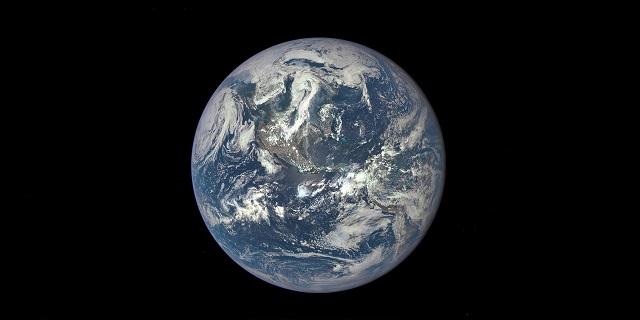Earth’s inner core possible reversed rotation won’t affect people, natural disasters — DOST

The possible spinning of the Earth’s inner core in an opposite direction would not affect humans and natural disasters such as earthquakes and volcanic eruptions, Department of Science and Technology (DOST) Secretary Renato Solidum Jr. said Wednesday.
The DOST chief made the remark after reports, which cited a study from China's Peking University, said that the inner core’s rotation “came to near halt around 2009 and then turned in an opposite direction.”
“‘Yung outer core ay umiikot talaga siya. Minsan, ito’y pwedeng magbago dahil sa init na nagmumula sa inner core papunta sa outer core at ito ay naimpluwensiyahan din ng pag-ikot ng mundo. Kung baga kung nagbago ang pag-ikot sa outer core, pwedeng magbagal ng millisecond lang ang ikot ng mundo,” Solidum said in a Super Radyo dzBB interview.
(The outer core is really spinning. Sometimes, this can change due to the heat coming from the inner core to the outer core, and it is also influenced by the rotation of the earth. If the rotation of the outer core changes, the rotation of the earth can slow down by just milliseconds.)
“Wala itong epekto kasi ang nangyayari ay sa kaloob-looban at ang nangyayari dit —, for example sa pagsabog ng bulkan o ‘di kaya pagkakaron lindol, pagkilos ng fault, doon lang ito sa crust and upper mantle nangyayari. Napakalayo para ma-impluwensiyahan,” he added.
(This has no effect because it is happening in the interior. The eruption of a volcano, an earthquake, or the movement of a fault only happens in the crust and upper mantle.)
Solidum said the movements in the Earth’s core may only affect the geomagnetic field, and may prolong the length of day by only a millisecond.
He explained the geomagnetic field is really reversing, but what he called a “very minor slowdown” would not be felt by and affect humans.
“Matagal na sa geological history na nagre-reverse ang geomagnetic field. So, wala naman talagang significance na nangyayari pa. ‘Yung nangyaring slowdown, hindi ‘yan mararamdaman sa ibabaw at walang epekto sa tao,” he said.
(The geomagnetic field has been reversing for a long time, based on geological history. There is really no significance that is still happening. The slowdown that happened could not be felt on the surface of the Earth and has no effect on people.)
“Wala naman po na masyadong epekto. Syempre ‘yung geomagnetic field ng ating bansa, kapag humina ang intensity, ay mas affected tayo ng mga solar radiation. Pero sa ngayon, wala pa naman tayong nakikitang ganong significance kasi ‘yung naka-publish ay very minor slowdown ng mundo at hindi naman masyado sa geomagnetic field.”
(There is not much effect. Of course, when the intensity of the geomagnetic field weakens, we are more affected by solar radiation. But for now, we do not see much significance because what has been published is a very minor slowdown of Planet Earth, and not much in the geomagnetic field.)
The study's authors, Xiaodong Song and Yi Yang said Earth's inner core's rotation previously changed direction in the early 1970s and predicted the next about-face would be in the mid-2040s.
They said they believed there are physical links between all Earth's layers, from the inner core to the surface. — LA, GMA Integrated News



